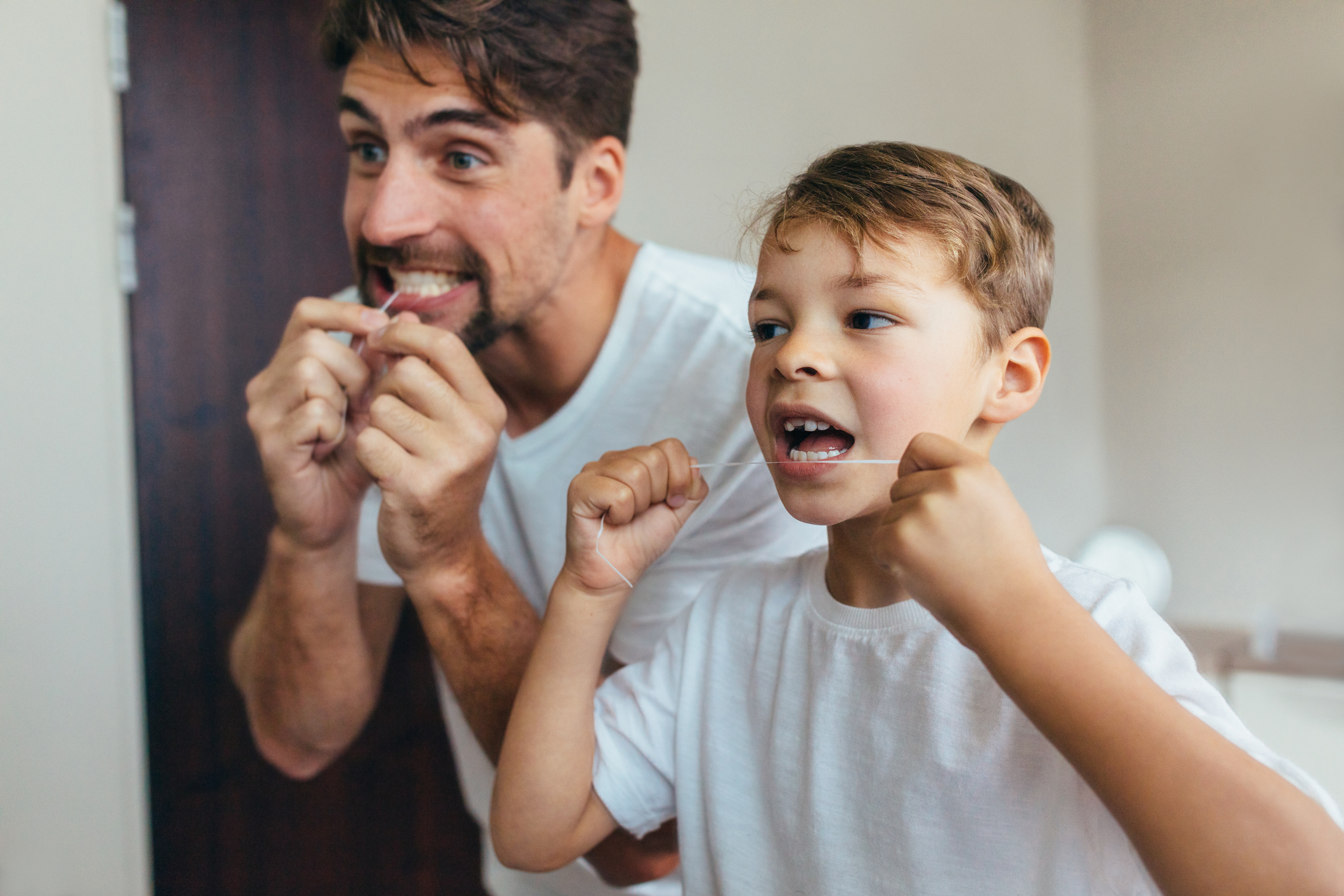As a parent, your child’s health is a top priority, and oral hygiene is no exception. Here is an overview of which oral hygiene practices are essential for children and how to get your kids to actually do them.
When should I start brushing my child’s teeth?
As soon as your child’s first tooth comes in, it should be brushed. In fact, good oral health begins even before the first tooth appears. This breakdown helps to care for your children’s teeth as they grow.
Just the gums
Before your baby’s teeth come in, you can keep their mouths free of harmful bacteria by running a clean, damp washcloth over their gums.
First teeth
Once your baby’s teeth start coming in, you can brush them with an infant toothbrush, water, and a tiny bit of fluoride toothpaste (about the size of a grain of rice).
First flossing
You can begin flossing a baby’s teeth as soon as they touch.
Spit it out
Toddlers around age 2 should learn to spit during and after brushing to prevent swallowing too much toothpaste.
Your kids’ daily teeth routine
Kids, like adults, should follow a daily dental routine. For the most part, it is not much different than yours. It is also important that your children use a toothpaste that contains fluoride.
Brush teeth at least twice a day, after breakfast and before bed. If possible, consider brushing after every meal. This helps clean away plaque buildup. If you are still holding the toothbrush for them, you can ask your dentist to demonstrate the best brushing techniques.
Your kids should also brush for 2 to 3 minutes every time, use a toothbrush with soft bristles, and floss daily.
When to take your child to the dentist
According to the American Academy of Pediatric Dentistry (AAPD), children should start going to the dentist by age 1 or within 6 months of the baby’s first tooth.
5 fun ways to get your child to brush their teeth
If you are a parent, then you likely already know that it is not easy getting your child to brush their teeth twice a day. Here are a few tips to make brushing more fun.
1. Let them choose their own toothbrush.
Everyone loves a present, right? Let your child choose their own toothbrush and toothpaste, and they might treat it like a cherished toy. Toothbrushes for kids often come in fun colors with superheroes and princesses on them.
2. Encourage brushing with positive feedback.
Like any good behavior, it is important to notice and encourage good brushing habits. Children thrive on positive feedback from the adults in their lives. Tell them they should be proud of their good dental care. If you feel comfortable with it, try a reward system, where your child receives a sticker or a present for good brushing habits.
3. Make a routine.
Routines help children to be successful. Once your child recognizes that tooth brushing a part of their day, every day, they will fight it less.
4. Brush your teeth together.
Brushing teeth together as a family can be a fun way to encourage healthy brushing habits.
5. Check for sensitivity or discomfort
Sometimes kids do not want to brush, because they simply do not like it. Other times, however, they don’t want to brush, because they experience discomfort.
Observe your child as they brush their teeth. If they seem to be in pain or discomfort, ask questions, and take a trip to the dentist if it feels warranted. It could be something as minor as a cavity that could be easily fixed.
Why is fluoride so important?
Flouride is the best way to prevent cavities. It works by protecting the enamel on your teeth, or the hard, outer layer of your tooth that protects it and keeps it strong. However, it is constantly being worn down by acid that is produced by your body when you eat sugars. When it gets worn down too much, it causes cavities to form.
For more information
Help your child develop dental habits that could last a lifetime. For more information, contact Arkansas Family Dental today 501-683-8886.
